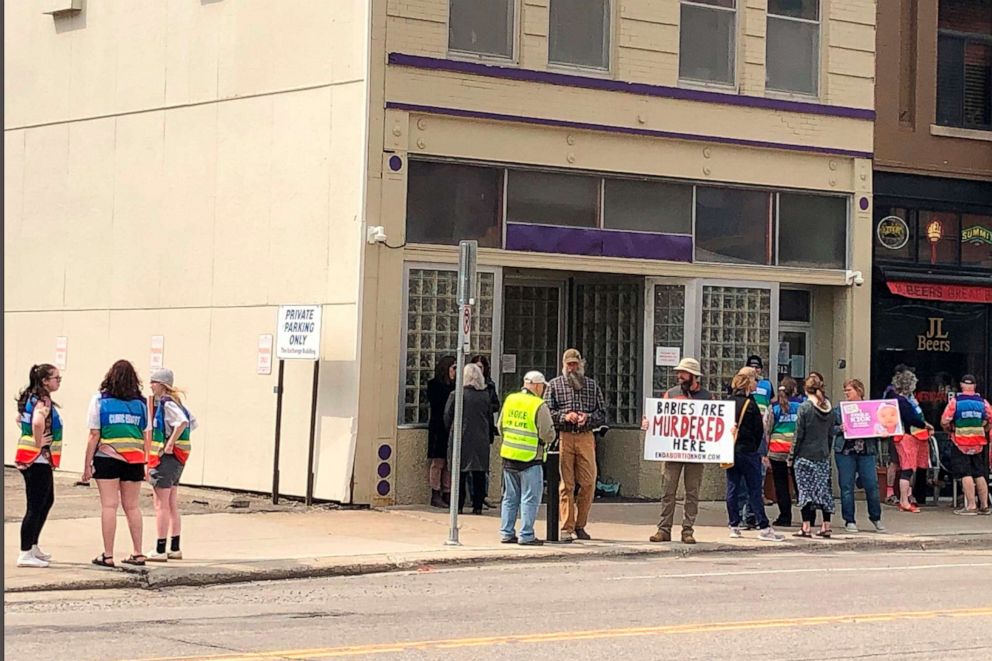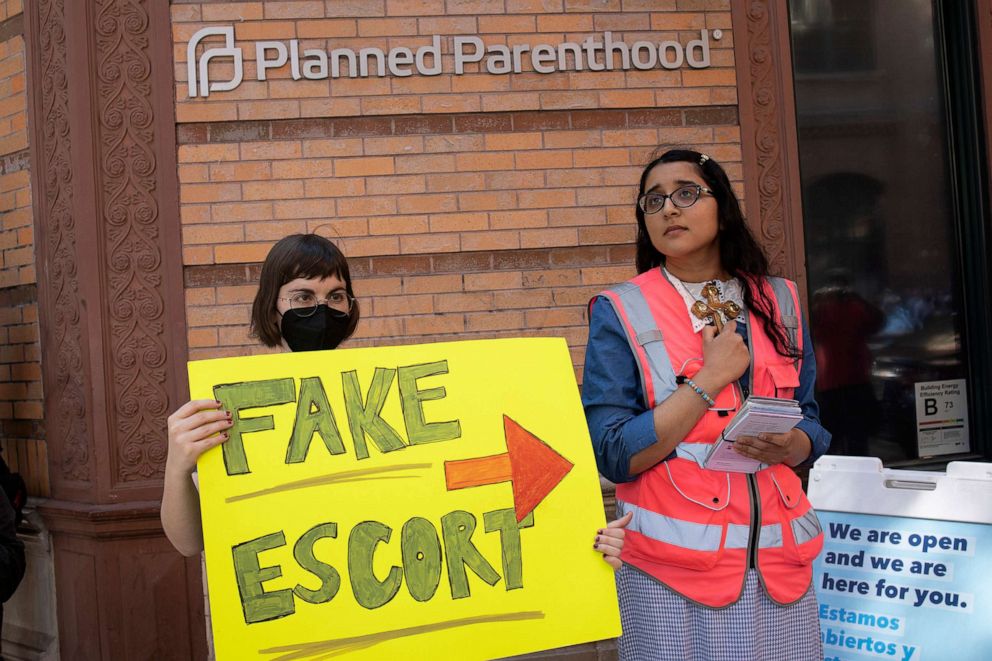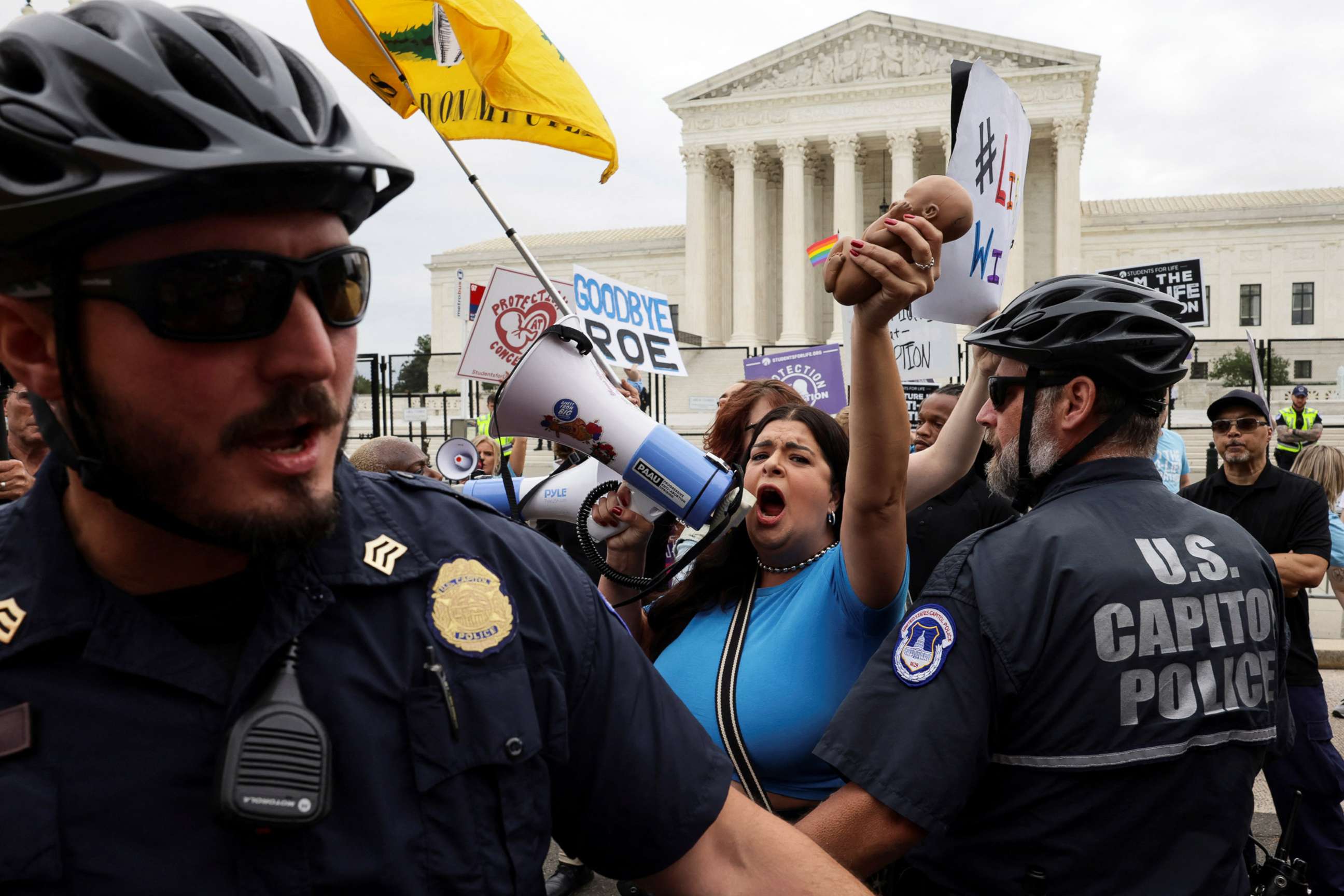Violence against abortion clinics rose in 2021, report says
The report finds strong links between abortion attacks and white supremacists.
Violence against abortion providers significantly rose in 2021, according to a report from the National Abortion Federation published Friday.
The report, which measures a variety of acts of violence and disruption, found the most significant increases were in stalking, blockades, hoax devices/suspicious packages, invasions and assault and battery, compared to 2020’s findings.
Vandalism and assault and battery continue to be the most common offenses, but other acts have seen major jumps, with stalking increasing 600% from 2020, according to the report.

Overall, the new data has found increased reported incidents of anti-abortion individuals “pushing, shoving, using pepper spray against, slapping, kicking, and physically fighting clinic escorts, staff and others outside of clinics.”
Melissa Fowler, chief program officer at National Abortion Federation, said that NAF found that abortion clinics are not facing peaceful protests, but rather a “coordinated campaign” that threatens abortion providers.
“It's really important that people understand the trends... and also the people behind those numbers,” Fowler said. “We can't sit back and let it be socially acceptable to harass abortion providers.”
The report also draws specific attention to the Jan. 6 insurrection, as NAF has found that many of those known to commit violence and disruption against abortion clinics have also been found to have been a part of the riots at the Capitol in early 2021.
Fowler told ABC News that it was important for the organization to include those details because they feel that it is important to make people aware of the overlap in activity by “extremist groups”.
Amanda Kifferly, vice president of abortion access and clinic security director of The Women's Centers, told ABC News that while for many Americans the behavior of insurrectionists was shocking on Jan. 6, abortion providers like herself were familiar with it.

She said that she actually looked up one of the usual protestors at her clinic on Facebook and watched as he live streamed his participation in the Capitol attack.
“We were so familiar with the tactics that we saw. The bullying, the loud noises, the militia gear, the harassing language that was used,” she said. “They are pro-violence and the words that they were saying like ‘hang people’ was very familiar.”
Fowler said the connections between anti-abortion and white supremacy groups are not new and they've been noted since abortion was legalized in the 1970s.
Kifferly and Dalton Johnson, the CEO of Alabama Women’s Center, said that've had to work to have law enforcement officials, different security providers and deescalation tactics implemented to address the violence and disruption that their clinics face.

The report also found that the pandemic affected the type of violence and disruption against abortion providers, as well as how many incidents were actually reported.
At a Thursday press call, Fowler said that many of their member facilities struggled to stay open due to regulations from the government, as well as from staffing issues. The strain of the pandemic, Fowler said, also meant that providers were not as capable of recording all incidents of harassment.
Kifferly said that she and her clinic staff experienced this, as they were “exhausted and became under more scrutiny.” Specifically, Kifferly said she and her staff had difficulty proving they were essential workers during the pandemic.
Fowler, Kifferly and Dalton all said that they don’t believe that the anti-abortion protestors that they have encountered are able or willing to have respectful conversations about the issue of abortion.
NAF reports have found acts of violence and disruption not only committed at abortion clinic sites, but also at the homes, churches and schools of the children of abortion providers.
Fowler said that NAF’s priority continues to be the safety and well-being of their providers and their patients, and working to get patients the care that they need.
The NAF has been collecting data on incidents of violence and disruption against abortion providers since 1977, according to the release.
To do so, they collect monthly reports from their member facilities and allied organizations and conduct follow-up reports.
For the 2021 report, NAF received reports from 80% of their facility members, and suspect that there is underreporting in some areas, such as picketing, hate mail and calls, hate email, internet harassment, obstruction and trespassing.



